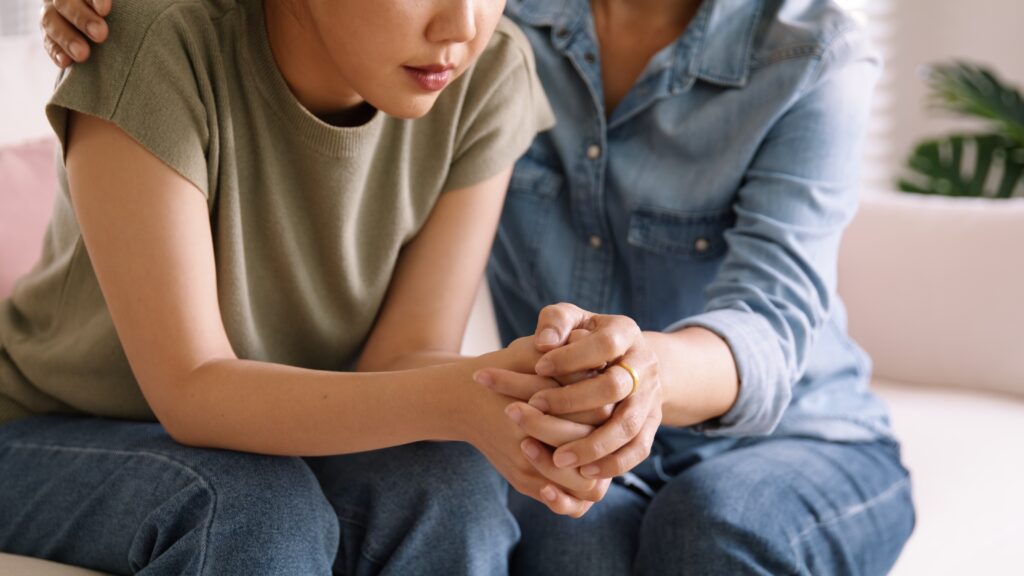We often hear of the trials and tribulations of long-distance relationships, but rarely do we consider the challenges of short-distance relationships – especially when the distance is as short as one or two rooms apart. Thanks to the COVID-19 pandemic, however, couples all over the world are facing these challenges head-on as they navigate how to quarantine with one another.
Maybe you’ve just moved in with your partner for the duration of quarantine, so now you’re learning how to cope with your partner’s quirks and lifestyle habits that you didn’t know about previously. Maybe you’ve been living with your partner for a while, but you’re not used to spending 24/7 with them in such close quarters. Whatever your situation, if you’re struggling to adapt to a new relationship dynamic as a result of quarantine, you’re not alone.
We spoke with Melissa Ferrari, renowned couples’ therapist with over 20 years’ experience in couples’ counselling and individual psychotherapy, to gain her insight into some of the common challenges couples in quarantine are experiencing.
How can my partner and I effectively resolve our conflicts?
Arguments are inevitable in relationships, but maybe quarantine is leading you and your partner to argue more often than you ever did before. In situations such as these, conflict resolution is key.
When it comes to handling confrontation, Melissa recommends face-to-face contact. “When we go face-to-face, we’re able to notice when we’ve hurt our partner,” she says. “There are those little nuances you can see in their face. When we’re not looking at each other, we can tend to ramp it up because we’re missing those cues… Our eyes help regulate each other and it then means that we’re able to correct things if we see that we’ve hurt our partner.”
In addition, it’s vital that both individuals participate in the dialogue equally, rather than one person monopolising the conversation. “The brain can’t process too many words. So, don’t take the stage for too long,” says Melissa. “There often is one partner that talks too much [in confrontations] and then the other person eventually stops processing what they’re saying.”
Melissa also highlights the importance of “fighting friendly.” She points out that, oftentimes, it’s not the subject matter of the argument that creates animosity, but things like “tone, facial expressions, eye rolls, sideways glances,” which act as threat triggers to the brain and can escalate an argument. If you want to fight friendly and productively, try to avoid these behaviours altogether.
I miss my alone time – what can I do?
You’ve likely heard the expression “opposites attract”. In fact, you and your partner may be living proof. While you may be struggling with is the loss of alone time during this quarantine period, your partner may be enjoying the increased opportunities to spend time with you.
Melissa points out that people generally have one of two attachment styles that are the result of our lived experiences: avoidant or anxious. Avoidants require more alone time and they process feelings internally. On the other hand, people with anxious styles are chattier and thrive on connection. According to Melissa, identifying each other’s attachment styles is crucial to handling such issues in your relationship: “When you’re able to understand these attachment styles within your relationship, you’re going to have a lot more success in knowing how to manage each other.”
So, if you’re an avoidant, how can you reclaim your alone time without offending your anxious partner? Learn how to communicate and meet your partner’s needs in a way that suits their attachment style: “If you’re someone who does need more alone time and you’re with someone who likes to spend a lot of time with you, [give them] reassurance. Say ‘I love you, but you know that I am someone who needs my alone time. We’ll make dinner together later tonight and have a great time.’ If you’re aware they have certain triggers, make sure you take care of [them] in a really honest way.”
How can I support my partner whose mental health has declined?
COVID-19 has caused anxiety, fear, and anger on a global scale; such feelings can undoubtedly have an adverse impact on people’s mental health and can prompt concerning behaviours. Maybe you’ve noticed some of them in your own partner: mood swings, unusual sleep patterns, or unhealthy alcohol consumption, for example.
To support your partner in situations like this, Melissa recommends approaching them in a gentle, non-accusatory manner, using kind words to keep stress levels low. Mention the behaviours you’ve noticed and remember to convey genuine concern.
If cases of extreme severity, such as displays of suicidal thoughts, recommend that your partner seek help from a psychologist, their GP, or visit a hospital. You can also encourage them to consult sites like Head to Health or healthdirect to explore digital mental health resources.
My partner is abusive – where can I seek help?
In times of crisis, vulnerable populations are often disproportionately and adversely impacted. Unfortunately, we’re already seeing it in the midst of the COVID-19 pandemic: global lockdowns have prompted a surge in domestic violence cases worldwide.
It’s important to know that abuse isn’t always physical. It can also take the form of emotional, sexual or financial abuse. There are different signs of abuse, which you can read more about on the White Ribbon Australia website.
If you’re in quarantine with an abusive partner, Melissa strongly advises reaching out to a trusted friend or family member for help: “If you are somebody who is in a domestically violent situation, unfortunately sometimes people hide it from family and friends. Right now, with everything that’s happening, I don’t think it’s a good idea to be hiding this kind of stuff. Reach out to somebody that you can really trust. Hopefully, you’re able to leave the house and call somebody up and say ‘Look, this is what’s going on. I know I’ve not told you before, but I am really worried.’”
You can also call any number of hotlines that will put you in touch with impartial, professional counsellors equipped to listen to and support you, some of which include:
- 1800RESPECT – 1 800 737 732
- Relationships Australia – 1300 364 277
- Lifeline Australia – 13 11 14
- White Ribbon Australia also lists a number of hotlines you can call for assistance and domestic violence support services in each state.





